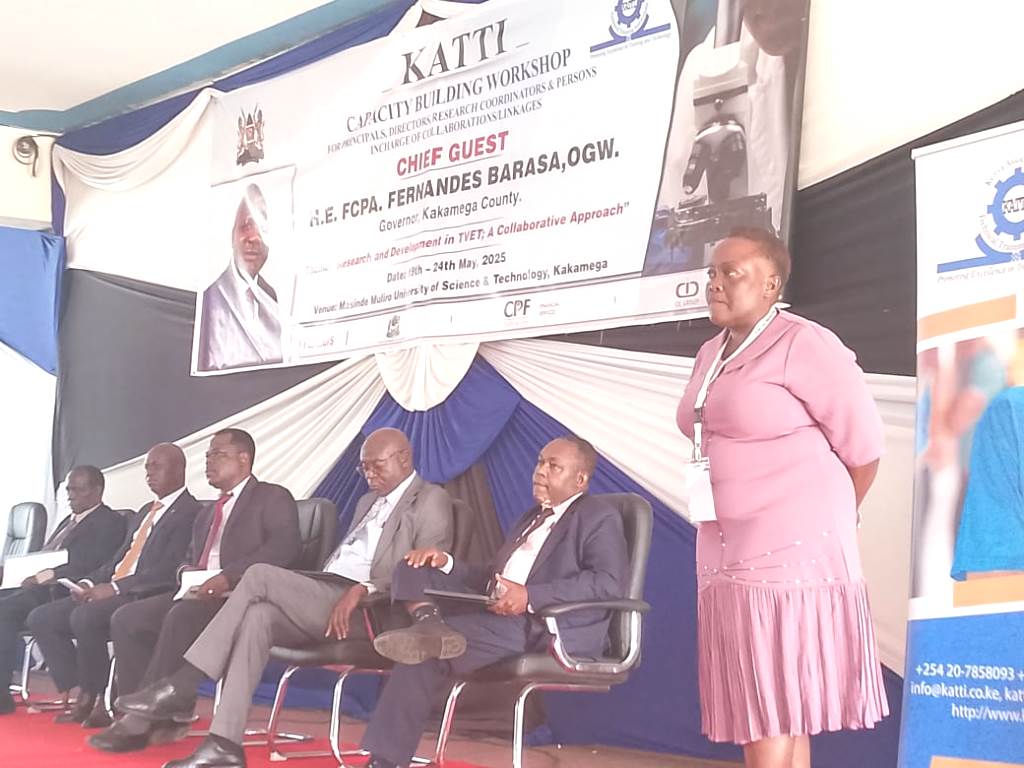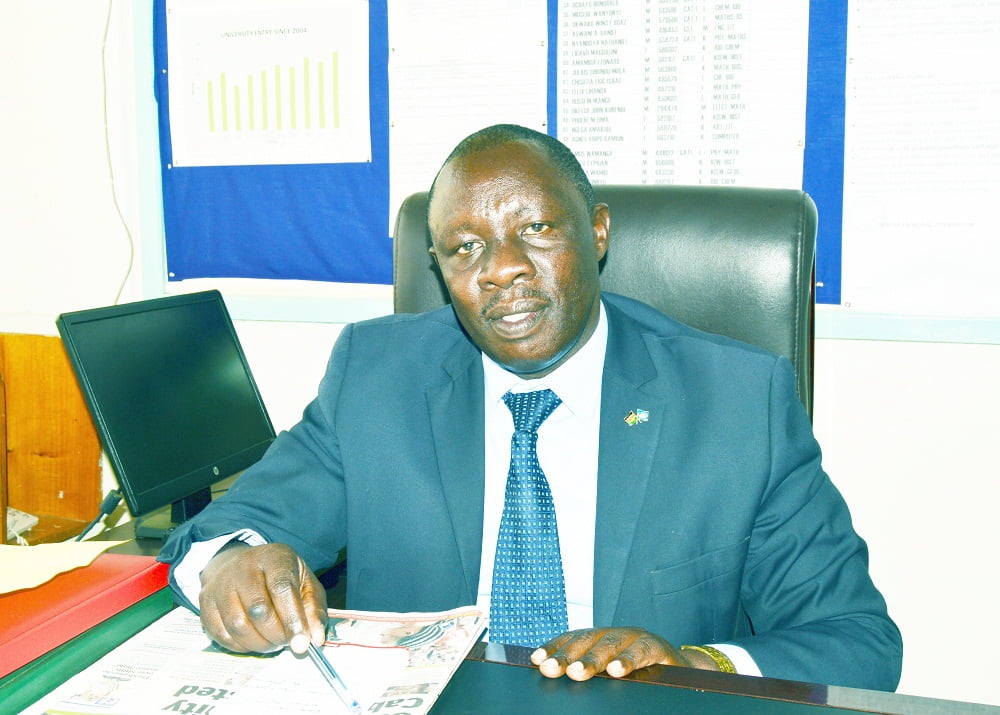As the country braces for a more skilled labour force, technical training institutions have been tasked with ensuring the labour market has a certified workforce.
The ongoing capacity-building workshop, themed “Research and Development in TVET”, is a collaborative approach that has seen principals, directors, research coordinators, and persons in charge of collaborations and linkages meet at Masinde Muliro University of Science and Technology (MMUST).
It is tailored to deliberate and agree on the possible ways technical institutions can train and certify over 15 million workers within the country.
The national director of TVET, Dr Meshack Opwora, lauded the workshop as important because it was key to the country’s economic and social development through innovations.
He stated that all TVET institutions should be able to bring the needed changes in the workplace and hence need to be abreast of the coming changes by improving their programmes through TVET fairs, skills competitions, and production units within.
YOUTUBE VIDEO:
He said they must embrace research innovations and collaborations to improve technical institutions.
Changes in the work environment and technology are being witnessed, prompting our institutions to align with them fully.
“We want these changes to be done at a very high standard, which can only be done through this research training. That is why we have assembled all the institutions within the country to realise this purpose. The sector is undergoing vigorous reforms that aim to produce a more skilled workforce for the nation.”
The director observed that institutions should be ready to conform to Competency-Based Curriculum training that is outcome- and industry-based.
“This meeting is aimed at training our officers who are in charge of liaising with industries, and we want to collaborate with all key stakeholders in rolling out our programmes, including recognition of prior learning, aimed at assessing and certifying the jua kali sector so that they are recognised in the job market.”
READ ALSO:
Matungulu schools in Machakos warned against overburdening young learners
Opwora stated that research was key to the innovations and commercialisation of our TVET institutions countrywide. We need a production unit to commercialise the innovations learned, which will also help them generate their source of revenue.
This will also help these institutions stand alone and stop relying on the government or funding.
He lauded the close working relationship between the national and county governments, adding that their collaborations are key in improving the institutions across the country.
Our institutions have been categorised as vocational training centres at the county level, where learners who have undergone training can join the national-level ones; hence, the two governments work together regarding curriculum and policies.
“The national government is in charge of policy direction, standardization, capacity building, curriculum and examinations and it trickles down to the county technical institutions and the reason we are also doing research is because we want to concentrate on what skills are needed today and in the future and we are designing courses that are futuristic where learners can be quickly absorbed in the job market ”.

Some of the participants attending the capacity building workshop. Photo Wakhungu AndanjeShadrack Tanui, the national secretary general of the Kenya Association of Technical Training Institutions (KATTI), said the meeting was important in KATTI’s calendar. There has been a lot of transformation in the TVET space, and they oversee the rollout of the new curriculum and modularisation.
Tanui also confirmed that RPL training for practitioners is ongoing across the country to sensitise and train our trainers so that they can implement the new curriculum.
“Research is important when it comes to innovations and the meeting of all the over 250 TVET principals together with ILO and research coordinators to find new ways of doing things as we are in an era of 4.0 industrial revolution that embraces the use of artificial intelligence and new technologies to address the emerging needs that takes place in the World.
For Kenya to position itself well globally, it requires that its youths be well skilled. This forum has brought together leading researchers worldwide on how to do things and carry out research so that we can collaborate to ensure all the players within the industry and sector get skills and be in a position to avoid skills mismatches and gaps that have been a problem for several years.”
KATTI, a professional association, is mandated to ensure that this kind of skilling and new researchers can assist them in reaching out to the youths in villages and the country at large to enable them to learn from the best of what we have.
“We are grateful that the state department of TVET has rolled out a very good agenda in collaboration with Germany and Finland, a curriculum rated as the best in the world. Through research, it will be successful, and we will be able to implement what is needed to make the state department and the government agenda realise the social pillar of Vision 2030,” he added.
By Wakhungu Andanje
>>> Click here to stay up-to-date with trending regional stories
>>> Click here to read more informed opinions on the country’s education landscape






